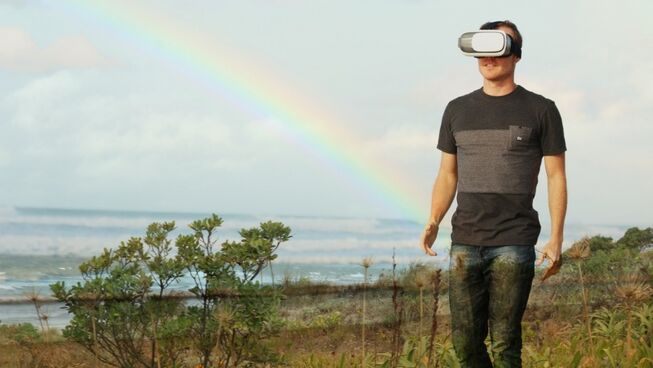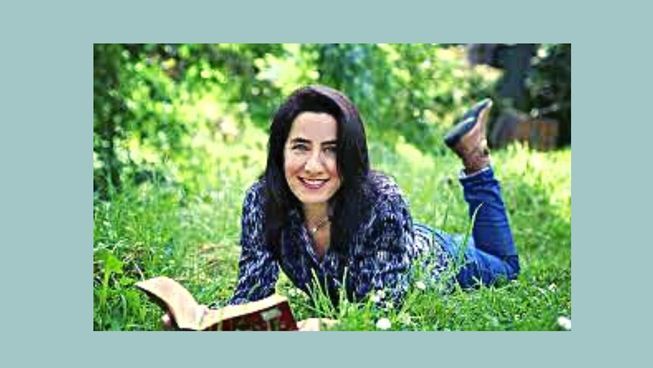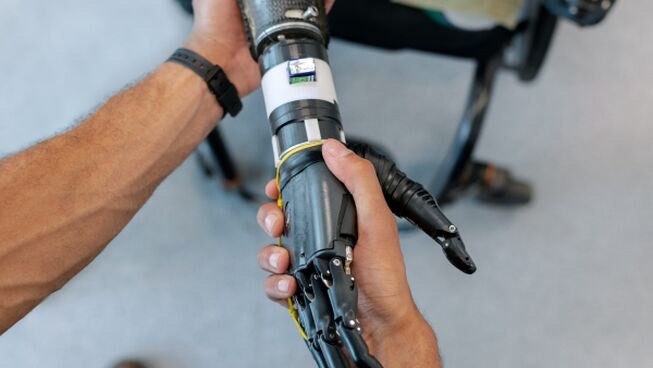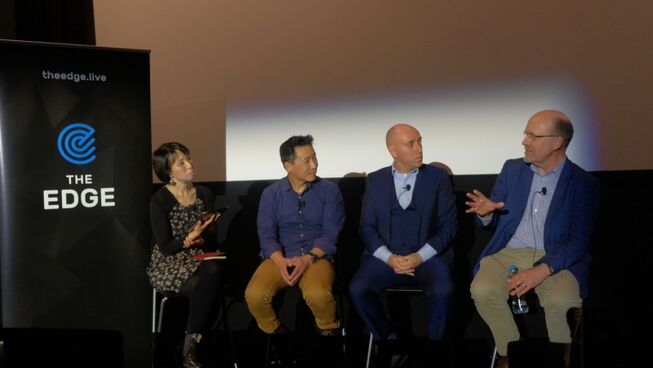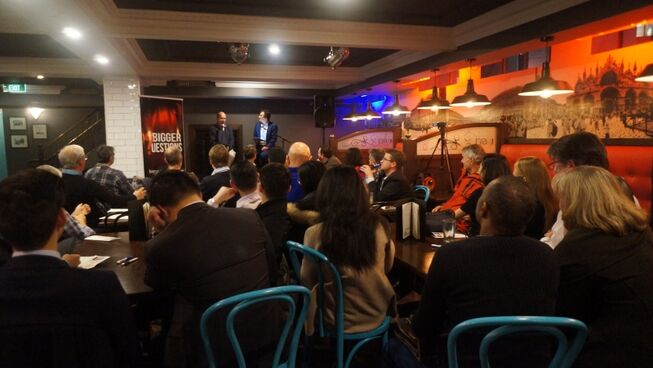Ep 138: How do I know what's real?
Virtual reality and social media challenge our conceptions of reality. So how do we develop authentic relationships? We explore the boundaries of reality with Melbourne author Katherine Canobi and explore an even greater reality.
Our guest: Dr. Katherine Canobi has worked as a cognitive scientist and university lecturer in developmental psychology. She is also the author of her debut novel, a popular young adult fiction book Mindcull.
Check out Katherine's website. Read more about Mindcull.
This conversation was recorded in partnership with St Augustine's Anglican Church in Moreland.
Invest in Bigger thinking for as little as US$1 per podcast on Patreon.
Bigger Questions asked in the conversation
So congratulations on your book, Mindcull, your debut novel. Now they say that the book publishing market is pretty competitive market. It’s your debut novel, has it become a best-seller yet?
They say a book has less than a 1% chance of being stocked in an average bookstore, yet I bought a copy of Mindcull in Dymocks in the city of Melbourne. What’s your secret?
Smaller Questions
Congratulations on Mindcull, it’s an excellent book, well worth the effort and I highly recommend it and it does deal with many big questions of reality, but before we get to talking more about that, we like to kick off Bigger Questions with a couple of smaller questions - we do try to have a bit of fun on the show.
Today we’re talking with author Katherine Canobi about reality. So Katherine our smaller questions to you are about the classic 1999 movie The Matrix, a movie which deals with the big questions of reality?
Mindcull book - exploring virtual reality
Your book, Mindcull is a bit more recent than The Matrix, but it also explores the nature and fringes of reality. So can you give us a spoiler free description of the book?
The blurb for your book poses the question, Who can you trust when nothing is as real as virtual reality? So how does virtual reality pose a challenge to our conceptions of reality?
You write about the challenges of reality - virtual reality, social media and so on - why did you think it would be worth writing a teen fiction book in that space?
Katherine you have a PhD in cognitive developmental psychology, how did this work inform your novel?
Nature of reality
Morpheus from the movie The Matrix asks Neo at a critical point in the movie, “What is real? How do you define 'real'?
Could you answer Morpheus? Does social media and virtual reality make this answer more complex?
Morpheus goes on to say, “If you're talking about what you can feel, what you can smell, what you can taste and see, then 'real' is simply electrical signals interpreted by your brain.” Is this too simple?
Inspiration for Mindcull
So what was your inspiration for the book?
In the Old Testament book of Esther, the main character Esther was a Jewish woman who was placed in a difficult position where her people, the Jews, were threatened with genocide. Yet she was in a position to potentially save her people and Esther 4:14, says,
For if you remain silent at this time, relief and deliverance for the Jews will arise from another place, but you and your father’s family will perish. And who knows but that you have come to your royal position for such a time as this?”
What did you draw from this?
So as a fiction author, do you think that the Bible is a worthy place for inspiration?
Why the Bible? Katherine’s story
You claim the Bible as a source of inspiration, but why is that, what convinced you that the Bible was worth following? You didn’t grow up in a Christian home did you?
What convinced you though?
Did Jesus seem real to you?
Bible’s reflection on reality - Thomas
There is an encounter recorded in the Bible, in the New Testament book of John, which is one of the four biographies of Jesus’ life we have. One of Jesus’ disciples has an encounter with Jesus after his resurrection where Thomas wouldn’t believe, unless as it says in verse 25,
“I see the nail marks in his hands and put my finger where the nails were, and put my hand into his side, I will not believe.
What do you think Thomas thought was real?
It seems that Thomas wouldn’t believe unless he had a ‘real’, physical encounter with Jesus?
Were Thomas’ demands reasonable do you think?
Interestingly Jesus then appears and satisfies Thomas’ demand, when it says in verse 26,
26 A week later his disciples were in the house again, and Thomas was with them. Though the doors were locked, Jesus came and stood among them and said, “Peace be with you!” 27 Then he said to Thomas, “Put your finger here; see my hands. Reach out your hand and put it into my side. Stop doubting and believe.”
It seems that Jesus was happy to satisfy Thomas’ demands of what was real?
Thomas responds with belief in verse 28, where he says, “My Lord and my God!” 29 Then Jesus told him, “Because you have seen me, you have believed; blessed are those who have not seen and yet have believed.”
So how does Jesus’ comment here, on believing without seeing like Thomas has, mean for our understanding what is real?
Would it matter if Jesus' resurrection was simply real in a virtual reality world? (Would it be the same?)
The Big Question
So Katherine, how do I know what’s real?
